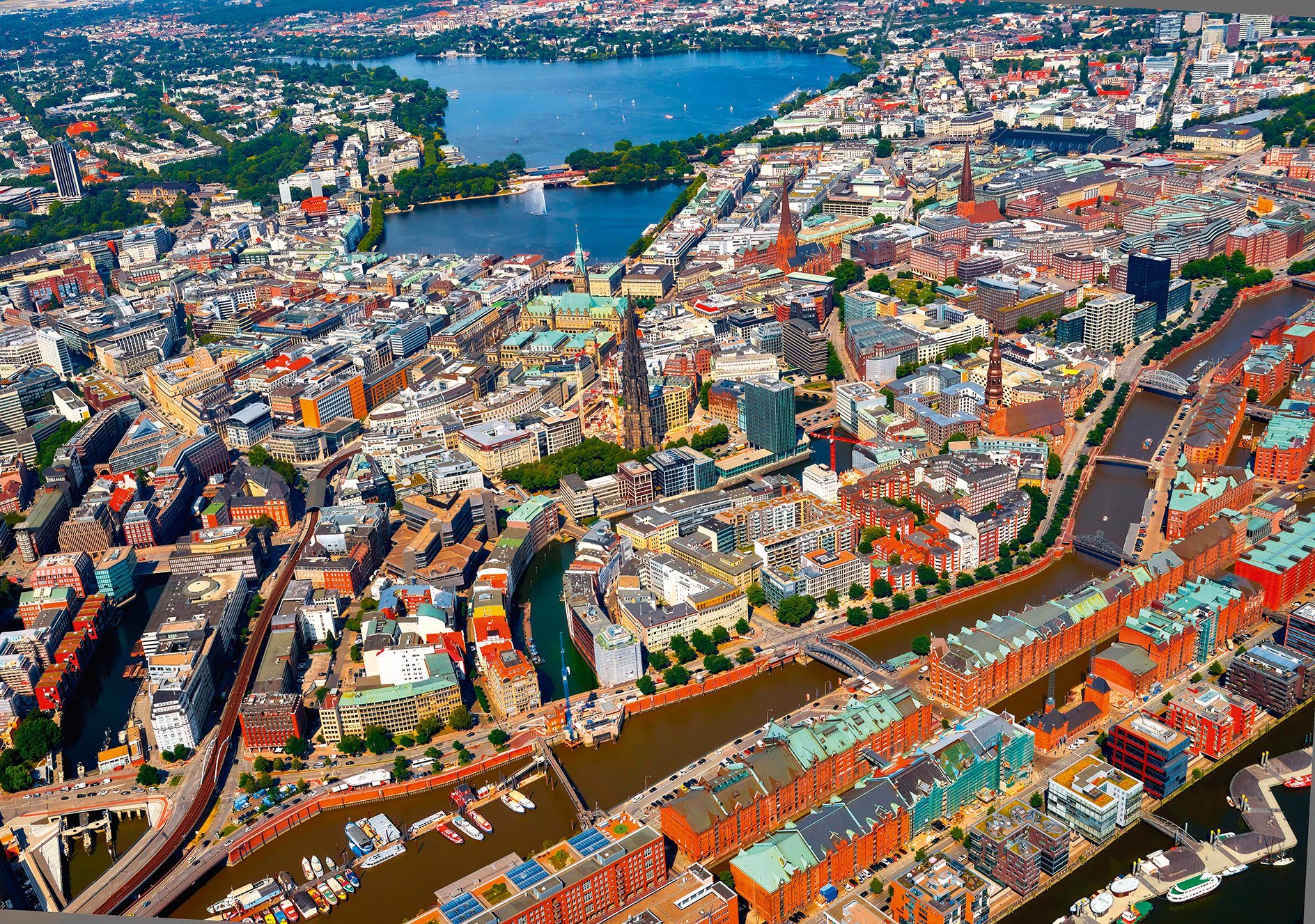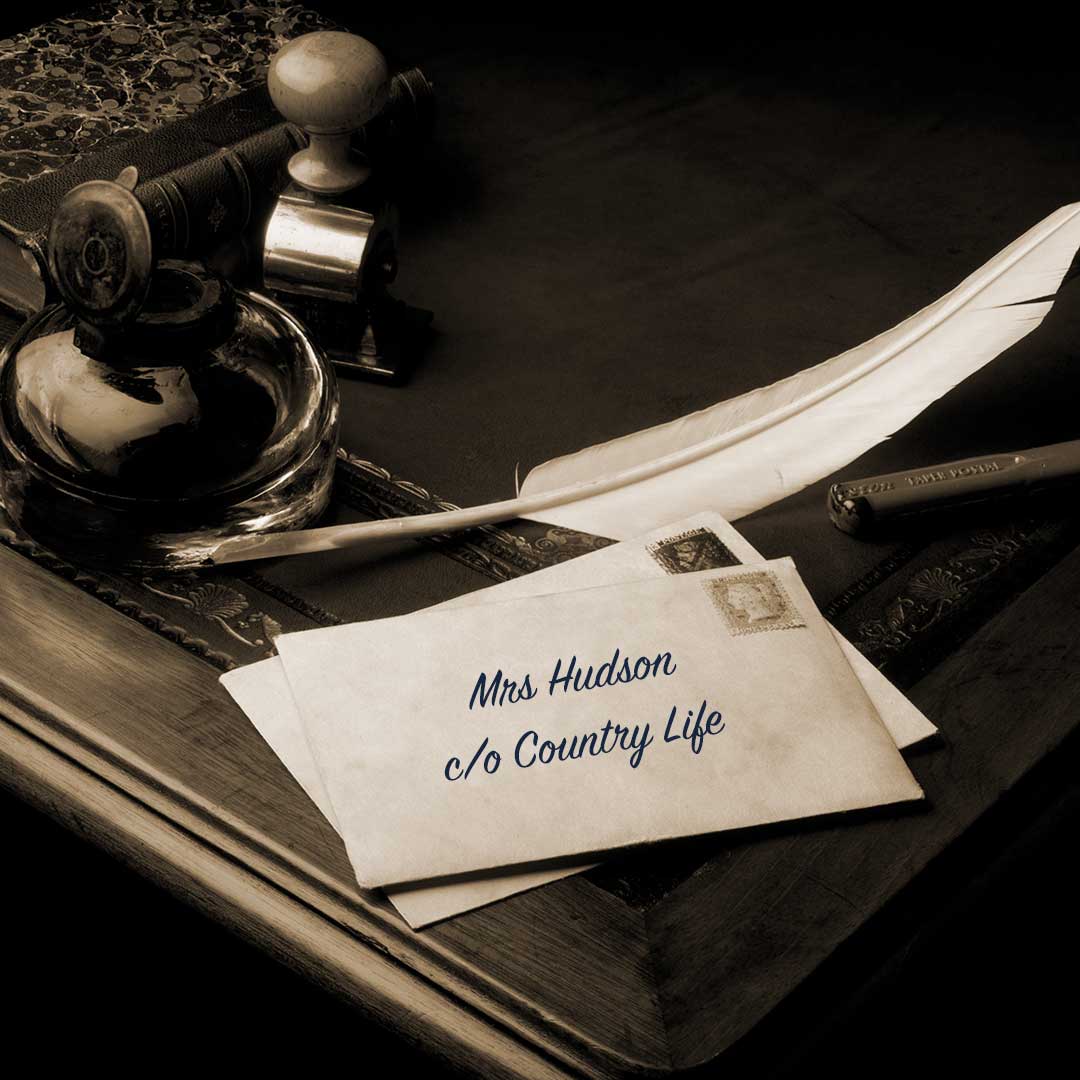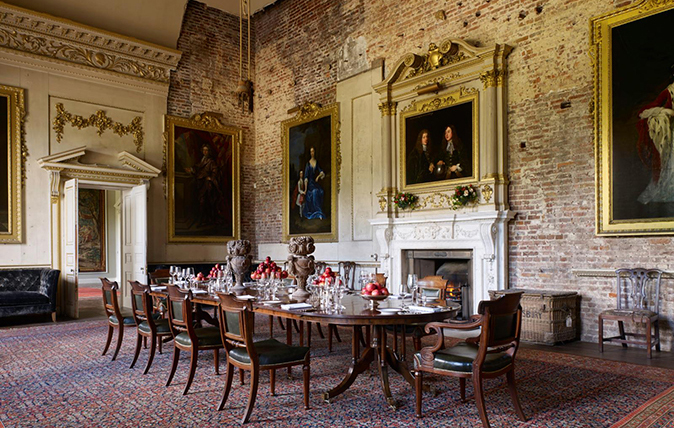Helen von Bismarck: I am a citizen of many places, but Britain was the first place where I felt: 'This is it, this is where I fit'
Dr Helene von Bismarck, is a fellow of the Royal Historical Society and a visiting research fellow at King’s College’s Centre for British Politics and Government, on her international life and the many perspectives it gives her.

Exquisite houses, the beauty of Nature, and how to get the most from your life, straight to your inbox.
You are now subscribed
Your newsletter sign-up was successful
I am a citizen of many places. I was born in Belgium to German parents, but didn’t live in Germany until I was almost four and only for a short time, because, after Belgium, we moved to Russia. Then I repeated it all — back to Russia, then Germany, then Belgium — before going to Italy for my gap year. After having spent time in so many different countries, at university I became interested in one place where I hadn’t lived as a child — the UK.
British history is so different from German or French, because change has occurred much more gradually. France is in its fifth republic and the country we know now as Germany has only existed since 1990, whereas the ruptures and discontinuities in British history are harder to discern, although no less important. Some historians tend to overstate the evolutionary, as opposed to revolutionary, character of British history, but, still, the long traditions of Parliamentary democracy and the uncodified constitution fascinate me.
The first British history paper I wrote was about the Suez crisis and that brought me to examine the question of Britain’s role in the world, which remains the focus of my work: the experience of Empire and decolonisation, as well as Britain’s historic relationship with Europe. For 15 years, my professional life brought me to the UK regularly. Although I don’t live in Britain permanently, it was the first place where I felt: ‘This is it, this is where I fit.’ To me, Britain has always been European as well as global.
I publish in two languages and read in four, but I really feel that I turn into who I want to be when I speak and write in English. I love its clarity and precision, as well as the humour one can express in it. There are many linguistic differences between English and German that I enjoy, little things, such as the word ‘alas’. I remember a teacher at school trying to explain it to me and I had no clue what he meant because there is no such expression in German.

The most intellectually challenging thing I ever did was taking A-Level Latin in English at the European School in Brussels. I really wanted to study Latin, but there weren’t enough Germans, so I had to join the class taught by a very British classicist. For two years, I spent every evening with three dictionaries: Latin-English, English-German and Latin-German. I’m not sure how much Latin I learnt, but I really improved my English.
Studying foreign languages is so important: you learn about culture and history, because you have to get into the story behind each phrase. It also teaches you tolerance, because you realise there isn’t only one right way; you begin to understand that everything is a matter of perspective and you get a certain humility, hopefully.
If you read newspapers in different languages, you realise how limited the horizons in individual countries can be. Covid is the perfect example of this: in Germany, there was a huge debate about being vaccinated during pregnancy. Initially, they wouldn’t allow it because they said there was no data available, although thousands of pregnant women had been vaccinated in America and Israel. There was data — but there wasn’t any German data. We saw this insular debate repeated in the discussion about vaccinations for teenagers in Britain.
Exquisite houses, the beauty of Nature, and how to get the most from your life, straight to your inbox.
I also enjoy being able to read books in the original language they were written in: it’s like being able to listen to different kinds of music according to my mood. Apart from history, my passion is literature, particularly 19th-century novels — Austen, Eliot, Trollope and Tolstoy, especially, although I can’t read it in Russian. Among more modern books, one of my favourite authors is Jhumpa Lahiri, who writes about the experiences of the Indian diaspora in America and Britain.
The topic of being a foreigner, with all that this entails, of feeling out of place, really speaks to me. I am used to being a stranger, an outsider, in Germany as well as abroad. It’s not always easy, because there is something missing, but the benefits outweigh the difficulties by far. When I was younger, I was constantly wondering: ‘Where do I really belong?’ But now I think being an outsider allows you to be an interpreter, to forge connections between places. I think everyone should be a stranger at least once in their life: it’s very good for you.
Dr Helene von Bismarck is a fellow of the Royal Historical Society and a visiting research fellow at King’s College’s Centre for British Politics and Government. She lives in Hamburg, Germany. You can follow her on Twitter.

Is it ever okay to put ice in your wine? How can you fix a broken friendship? And which cutlery do you use for fish? — Country Life's agony aunt Mrs Hudson tells all

Britain's most beautiful rooms, captured by Country Life for 120 years
John Goodall explains how Country Life’s earliest photographers pioneered the art of capturing England’s most beautiful rooms.
Dr Helene von Bismarck is a fellow of the Royal Historical Society and a visiting research fellow at King’s College’s Centre for British Politics and Government. She lives in Hamburg, Germany.